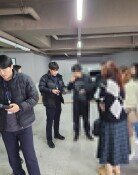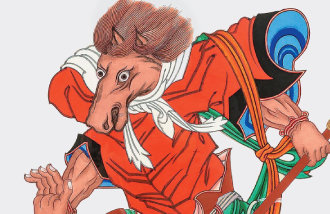Cleanup drive in officialdom downplayed
Cleanup drive in officialdom downplayed
Posted November. 14, 2000 20:23,
An intensive cleanup drive is to be launched in officialdom as President Kim Dae-Jung expressed his strong determination to eradicate corruption and irregularities on Monday.
The tough anti-corruption campaign followed the arrests of a Chong Wa Dae janitor who extorted hundreds of million of won from a businessman and the deputy assistant chairman of the Financial Supervisory Service, which plays a leading role in financial reform.
Government agencies in charge of audit and inspection recognize the necessity of an anti-corruption drive as moral hazards in officialdom have reached a serious level of late. The administration faces criticism from inside and outside of such agencies, however, that the cleanup drive is a mere gesture initiated by the political arena and will eventually bring about many ill effects.
In particular, many people harbor suspicions about the background and timing of the campaign. The policy was announced after Rep. Suh Young-Hoon, chairman of the ruling Millennium Democratic Party, first raised the need for the campaign in his keynote speech at the plenary session of the National Assembly on Nov. 10 and discussed the issue with Presidential Chief Secretary Han Kwang-Ok.
Opposition of agencies in charge of audit and inspection:
The Supreme Public Prosecutor¡¯s Office, the core agency slated to conduct the cleanup drive, reacted testily to the plan, questioning how effective an anti-corruption campaign conducted at the order of the political world could be. It also noted that it is in a troubled situation due to the opposition party¡¯s impeachment motions against its top leaders and the illegal loan scandal involving Dongbang Mutual Savings and Finance Co.
A high-ranking prosecutor asked what politicians can expect of prosecutors after they troubled them so much. He flatly stated that either Chong Wa Dae or the ruling camp are free to voice their respective opinions, but that prosecutors do not follow anyone¡¯s instructions.
Another senior prosecutor said it would not easy for the agencies in charge of the anti-corruption drive to inspect themselves in a situation where their own morality is questioned.
A Seoul district prosecutor said that if the launch of the cleanup drive is set in advance, those who are subject to inspections will refuse to accept it, claiming that they are pre-designated targets. The prosecutors should be left alone to do their jobs as usual, he added.
Opinions from various walks of life:
Law Prof. Kim Il-Su of Korea University said the anti-corruption drive should not be conducted in the method of prescribing drastic medicine like a special crackdown on criminals. The government has to reform systems so that the agencies in charge of audit and inspection such as the prosecutor¡¯s office can conduct their routine activities continuously. The government is also required to empower them to do their jobs as they used to, and they will then be able to contribute to eradicating corruption and regaining the public¡¯s trust.
Lawyer Yun Ki-Won insisted that the anti-corruption campaign would be seen only as a mere gesture aimed at breaking through political and social difficulties if it is conducted in consideration of the social atmosphere at a specific time or at the request of specific political forces.




![“작년에 얼린 떡으로 떡국 No!”…냉동 떡 2달 지나면 버려야 [알쓸톡]](https://dimg.donga.com/c/138/175/90/1/wps/NEWS/IMAGE/2025/12/31/132975107.3.png)
![[김순덕 칼럼]이혜훈 장관 지명으로 ‘내란 청산’ 끝났다](https://dimg.donga.com/c/138/175/90/1/wps/NEWS/IMAGE/2025/12/31/133073126.1.jpg)

